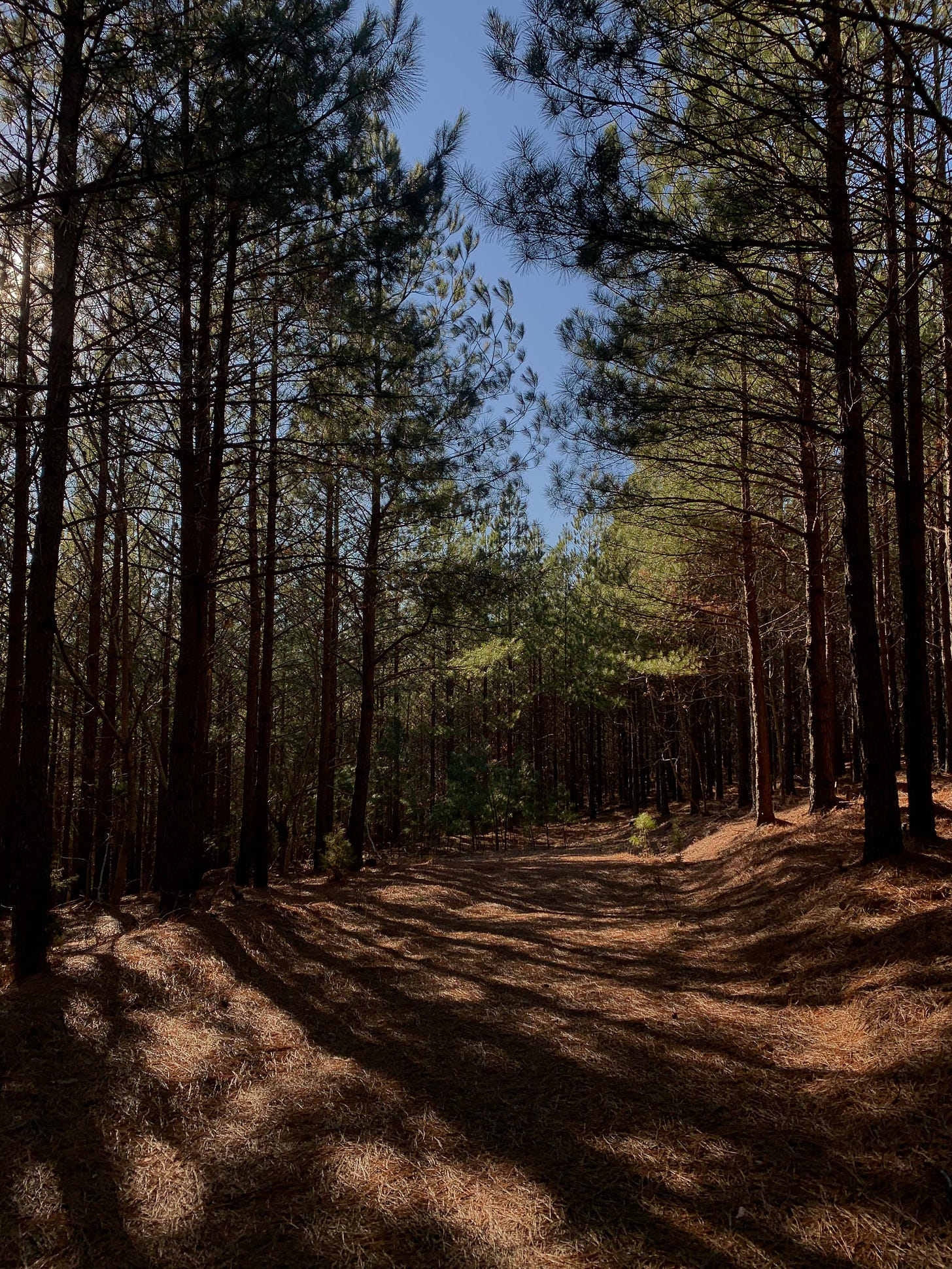Why a 50k is Easier than a Marathon
Ditch the road, hop on trail.
Its me! Hi! Stirring the pot once again.
“First he says your pace doesn’t matter, now he’s saying an ultra is easier than a marathon?!?”
You bet I am! I’m here to convince you that running a trail 50k isn't just more pleasant than a road marathon, but that you can run and finish an ultra.
I never ever imagined I would run a marathon, let alone a 50 kilometer race (31.06 miles). Having run multiple 26.2 distances on roads, and over half a dozen 50k trail races, I can confidently say the trail 50k’s were easier and more enjoyable, and a better experience overall.
On it’s face, it seems like running 31 miles is harder than running 26.2, right? However, the magic of trail running changes the game. The difference between running on a soft surface and hard surface becomes very noticeable, especially after several hours. The atmosphere of a trail 50k is all about encouraging people to finish, between friendly aid station volunteers, and friendly trail runners, I have never been at a trail ultra where I didn’t feel massively supported by everyone involved, even my competitors.
I hear a lot of people say their goal for their first marathon is to not walk. In ultramarathon’s not only is walking normal and encouraged, it can actually be strategic.
So how can a race that's longer than a marathon be easier? It’s surprisingly simple.
Trail running is dynamic by nature (pun intended). Soft surfaces, and varying terrain minimize repetition injuries and ease impact on joints reducing delayed onset muscle soreness and fatigue. Ultra races are less about speed and more about strength+consistency, which brings with it a host of benefits from reducing risk of injury to just providing a much more pleasant race experience. Trust me, your joints will thank you.
Particularly for more novice/ beginner runners, the trail naturally protects you from muscular fatigue, ligament tearing, and injury that pavement pounding can so easily deliver to hobby joggers and elite marathoners alike.
In a lot of cases, repetition without balance brings injury. Dynamic, varying exercise can bring balance and strength without having to over program. Combine repetition, static environments, with training plans that don’t incorporate any cross training, strengthening/stretching, or mobility work and what do you get? Injured, burnt out, and sad!
I will admit, while it is my opinion trail running is unequivocally better for the human body overall than road running, too much of any good thing is always becomes a bad thing. Trail running isn’t a bullet proof tool to avoid injury indefinitely, but it is a step in the right direction due to the variety of movement it provides. A peripheral benefit of trail running is that it implies dirt, time in green spaces/nature, and at least relatively fresh air.
All that being said, we aren’t just talking about a casual trail run, we’re talking about an ultra distance adventure, which is no small feat. The point is, and the remains that if you ditch the road marathon, and opt for trails your body will thank you. I long for the day that road marathons are considered secondary to trail 50k’s as the standard of endurance and athleticism.
So if I convinced you to sign up for a 50k instead of a road race, next week I will be publishing a beginner training plan to help get you from start to finish line. If you’re interested in finding a trail race near you, take advantage of these resources:
American Trail Running Association
Ultrarunning magazine's race catalog
Slow down, get on trails, and enjoy the ride 😎
-Sean Cate


